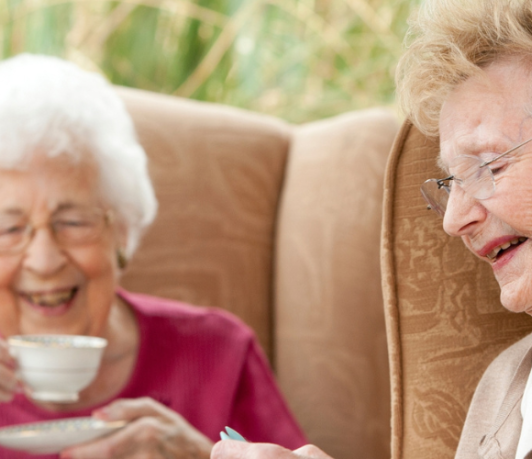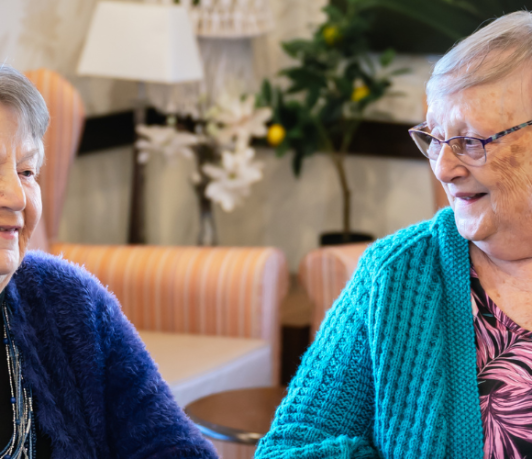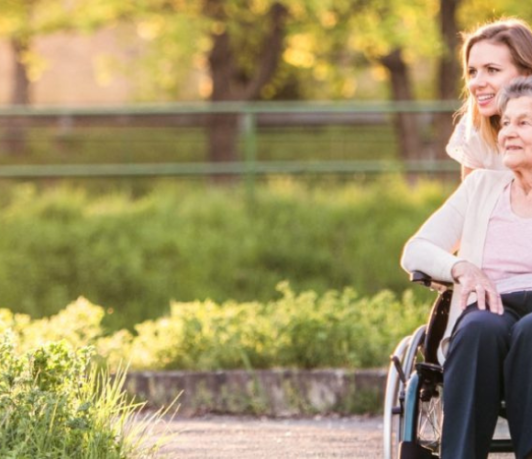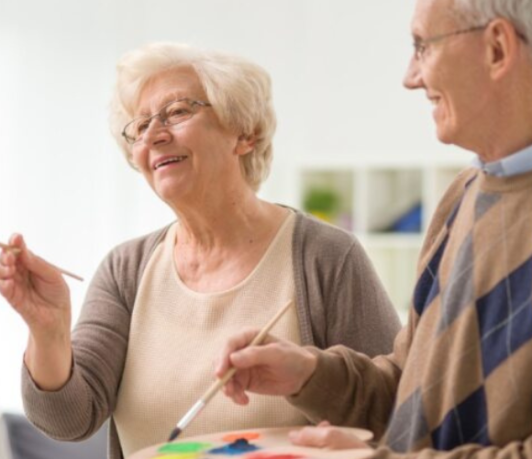How to Reduce the Risk of Falls at Home
Home Care |
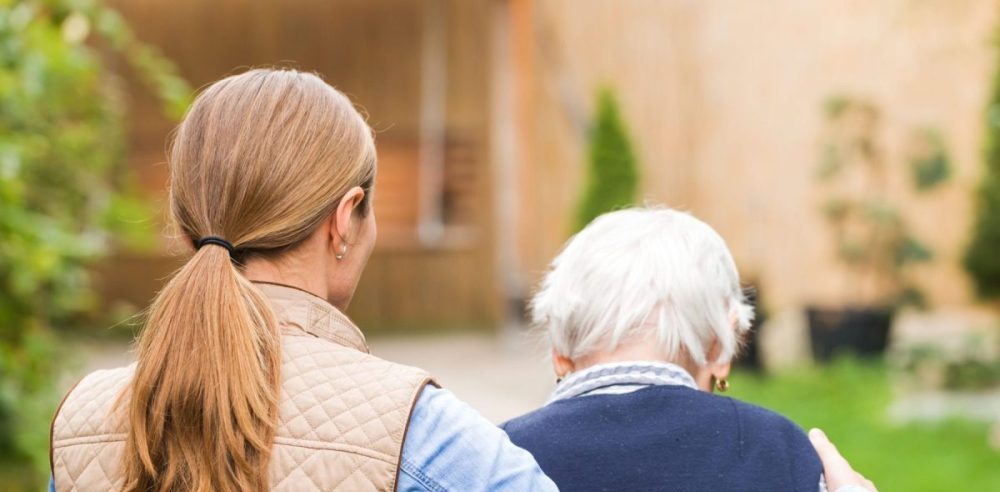
With more number of senior Australians opting to live at home for longer, and home care services gaining in popularity, it’s becoming increasingly important that we ensure a safe and secure living environment as we age.
In particular, the risk of falls at home can lead to serious injuries and long-term consequences, significantly impacting independence and overall wellbeing. In this comprehensive guide, we share a number of key expert tips on how to reduce the risk of falls at home, empowering you or a loved one to create a secure living space that supports independence and promotes peace of mind.
1. Maintain a clutter-free environment
A cluttered home can increase the risk of falls. Ensure your living areas are free from tripping hazards, such as loose wires, rugs, and cluttered furniture. Keep walkways clear, allowing for easy movement around the house. Consider rearranging furniture to create open and spacious pathways. Avoid leaving items on the stairs or in doorways, as they can impede movement and increase the risk of falls. Regularly declutter and organise your living space to maintain a safe environment.
2. Ensure adequate and available lighting
Proper lighting is essential for maintaining a safe home environment. Ensure all areas of your home are well-lit, including hallways, stairways, and entrances. Install bright light bulbs that provide sufficient illumination. Consider using lamps or adjustable lighting fixtures to reduce glare and create a comfortable ambiance. You may want to consider installing nightlights in hallways and bathrooms to provide guidance during the night. Regularly check and replace light bulbs to ensure optimal lighting conditions throughout your home.
3. Establish secure floor surfaces
Slippery floors pose a significant risk of falls, especially in areas prone to moisture, such as bathrooms and kitchens. You could consider investing in non-slip mats or rugs with rubberised backings in these areas to reduce the risk of slipping. Additionally, make sure that mats lie flat and do not create a tripping hazard. If you have smooth surfaces like tiles, consider applying non-slip coatings or adhesive strips to enhance traction. Repair or replace damaged flooring to eliminate uneven surfaces that may cause trips and falls. Be cautious whenever cleaning the floors, ensuring they are dry and free from any slippery substances.
4. Research assistive devices
If you or a loved one require extra support, drawing on appropriate assistive devices can significantly reduce the risk of falls. You could install handrails along staircases and in bathrooms to provide support and stability. Consider using grab bars near toilets and in showers or baths to assist with balance and movement. If necessary, use walkers or canes to provide additional support while moving around the house. You may want to look into consulting with a healthcare professional or an occupational therapist to determine the best assistive devices for your specific needs.
5. Maintain a healthy lifestyle
Maintaining good overall health and strength is essential for preventing falls. Engage in regular physical activities tailored to your abilities and consult with healthcare professionals for advice on appropriate exercises. Participate in activities that improve muscle strength, balance, and flexibility, such as walking, yoga, or tai chi. Strengthening your muscles and improving your balance can go a long way in reducing the risk of falls. Additionally, maintain a healthy diet that includes calcium-rich foods to support bone health. Stay hydrated and ensure you are getting adequate nutrition to support your overall wellbeing.
6. Review your medication
Some medications may cause dizziness, weakness, or imbalance, increasing the risk of falls. Regularly review your medications with a healthcare professional or carer to ensure they are appropriate and do not pose any adverse effects. Always inform your doctor or health professional about any recent falls or balance issues you have experienced to allow them to fully evaluate potential medication-related factors. Follow prescribed dosages and be mindful of any potential side effects that could impact your stability and coordination. If you experience any concerning side effects, consult with your healthcare provider immediately. It’s important to keep an updated list of your medications, including over-the-counter drugs and supplements, and share it with your healthcare provider to ensure comprehensive monitoring and management of your medications.
7. Consider eye and hearing health
Regular eye and hearing check-ups are crucial for maintaining optimal sensory functions. Poor vision or hearing impairments can increase the risk of falls, so schedule regular appointments with the appropriate health professionals to assess your eye and hearing health. As part of this, ensure your prescription glasses and hearing aids are up-to-date and in good working condition. By prioritising your eye and hearing health, you can enhance your overall safety and reduce the risk of falls.
8. Focus on bathroom safety
The bathroom is a common area where falls occur, so implementing the proper safety measures can significantly reduce the risk of accidents. You may want to think about installing grab bars near toilets, in showers, and around the bathtub to enhance safety and stability. Use non-slip mats or adhesive strips in the bathtub and shower to prevent slipping. Consider using a shower chair or bench if you have difficulty standing for extended periods. Use a raised toilet seat if needed, making it easier to sit and stand. Install a handheld showerhead for increased convenience and ease of use. Keep essential items within reach, avoiding the need to overreach or strain yourself. Ensure that the bathroom is well-ventilated to prevent the buildup of moisture and reduce the risk of slipping on wet surfaces. Regularly clean the bathroom to prevent the growth of mould or mildew, which can make surfaces slippery. By implementing these bathroom safety measures, you can create a secure environment and reduce the risk of falls.
9. Undertake regular home maintenance
Maintaining your home is essential for reducing the risk of falls. Regularly check and repair loose floorboards, uneven surfaces, or damaged carpeting that could pose a tripping hazard. Ensure outdoor walkways, steps, and handrails are in good condition and free from debris or obstructions. Secure loose or wobbly handrails and fix any loose or broken steps promptly. Repair or replace damaged outdoor pathways or driveways that may cause trips or falls. Keep outdoor areas well-lit to ensure visibility during night. Trim overgrown vegetation and remove any hazards, such as fallen branches or slippery leaves, from your yard. Additionally, keep entryways and walkways clear of clutter, such as shoes or garden tools, to maintain a safe passage. Regularly inspect and maintain your home’s safety features, such as smoke detectors, carbon monoxide detectors, and fire extinguishers. By prioritising regular home maintenance, you can create a secure and hazard-free living environment.
10. Seek professional advice and home care services
At Respect, we understand that maintaining a safe home environment can be challenging, especially for older Australians. We offer professional home care services tailored to your needs. As part of home care services, our dedicated team of care staff can assist you with occupational assessments, home modifications and support to ensure your living space is safe and accessible. They can also help with household chores and home maintenance, reducing the need for strenuous activities that may increase the risk of falls. Our staff can also provide companionship and support, offering peace of mind and a helping hand when needed. By seeking professional assistance and home care services, you can receive the support necessary to create a safe and secure living environment.
Read our handy guide on how to access a home care package and begin to receive the services you need, all in the comfort of your own home.
11. Stay connected and seek support
Maintaining social connections and seeking support are vital for overall wellbeing and fall prevention. Loneliness and isolation can contribute to a higher risk of falls, as they can lead to decreased physical activity and reduced motivation to maintain a safe living environment. Stay connected with friends, family, and community groups. Engage in social activities, such as joining clubs or participating in group exercises specifically designed for older adults. These activities not only promote physical health but also provide opportunities for social interaction and support.
In summary
Reducing the risk of falls at home is crucial for maintaining your independence and wellbeing as you age. By following these expert tips, you can create a safe living environment that supports your mobility, minimises tripping hazards, and promotes overall safety. Remember to regularly review your home for potential risks, make necessary modifications, and seek professional assistance when needed. By taking proactive steps and embracing a holistic approach to fall prevention, you can enjoy a secure and comfortable living space while reducing the risk of falls.
Here to support you
At Respect, we’re passionate about supporting older Australians to ensure the next phase of their lives are filled with purpose and possibilities.
So whether it’s through our network or aged care homes or our home care support options, we are here for you and your family whenever you need us. Your future should shine with meaning, comfort and conveniences — and with our support, you’re backed by over a century of care and consideration for the way you want to live.
We’re here to help! For more information about how to access a Home Care Package and get started with home care support, including the available opportunities and our range of services, download our digital brochure. Got questions or like to receive more support? We’re here to help. Please reach us via our contact page or call us on 1300 144 144.
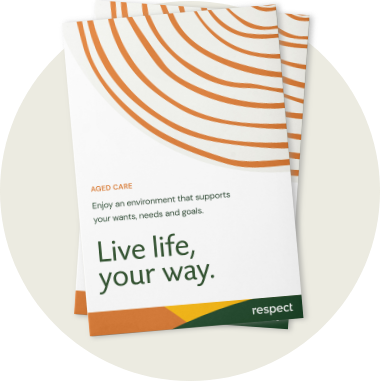
Book your free no-obligation consultation call
Simply fill in the below form and one of our expert Care Advisors will give you a call within 48 hours to discuss your home care options.
Would you rather talk to us? Give us a call on 1300 144 144
